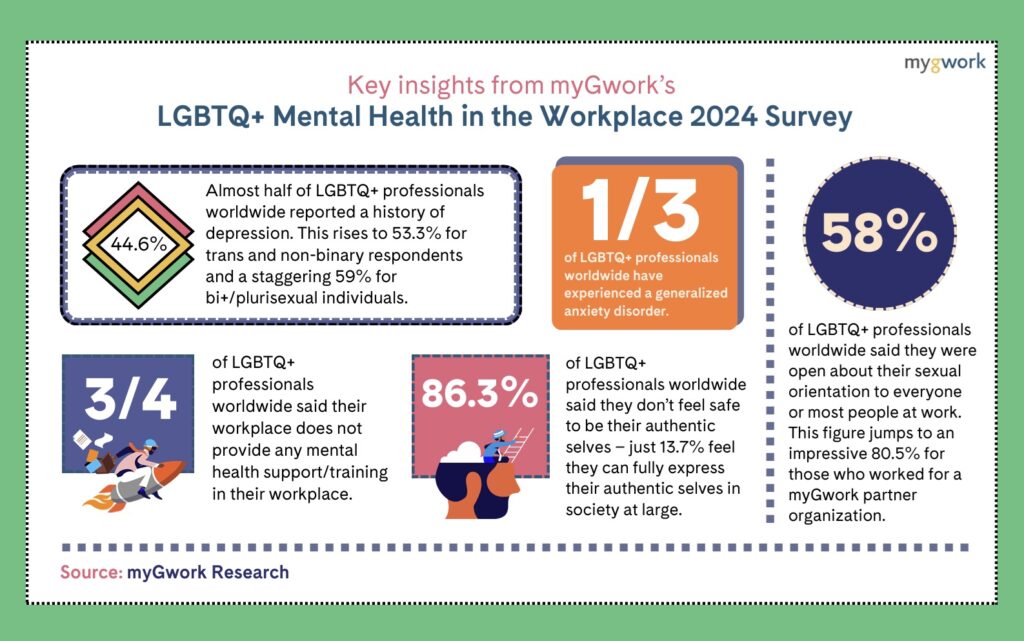86% of LGBTQ+ professionals don’t feel safe being themselves, study finds
The research also found 44% of LGBTQ+ professionals experienced depression
By Dale Fox

A global study has found that 86.3% of LGBTQ+ professionals worldwide don’t feel safe to be their authentic selves.
The research by myGwork which gathered insights from over 1,000 participants across 65 countries, sheds light on various aspects of LGBTQ+ life, with a particular focus on mental health and workplace experiences.
According to the study, 44.6% of LGBTQ+ professionals reported experiencing depression at some point in their lives. This figure was higher for certain groups within the LGBTQ+ community, with 53.3% of trans and non-binary participants and 59% of bi+/plurisexual individuals reporting experiences of depression.
One-third experienced anxiety
The survey also found that approximately one-third (31%) of LGBTQ+ professionals have experienced generalised anxiety disorder. These figures highlight the mental health challenges faced by many in the LGBTQ+ community.

In the workplace, the study revealed that three-quarters of LGBTQ+ respondents felt their employers did not offer adequate mental health support or training. However, there were also some positive findings. Over half (58%) of LGBTQ+ professionals reported being open about their sexual orientation with everyone or most people at work. This figure rose to 80.5% for those employed by organisations partnered with myGwork, suggesting that inclusive workplace cultures can have a significant positive impact.
“It’s important to recognise their unique struggles” – myGwork co-founders Adrien and Pierre Gaubert on LGBTQ+ professionals
Adrien and Pierre Gaubert, co-founders of myGwork, commented in a statement: “Our latest research highlights the significant mental health challenges faced by LGBTQ+ professionals globally. It is vital to recognise their unique struggles and provide comprehensive mental health support. Workplaces must not only be inclusive but also actively support LGBTQ+ individuals to foster thriving environments.”
The study’s report includes recommendations for employers and policymakers on implementing more robust mental health support systems and fostering inclusive work environments.
You can read the full study here.
